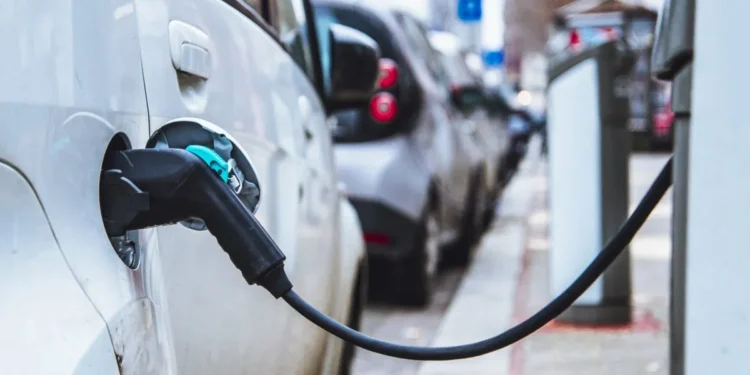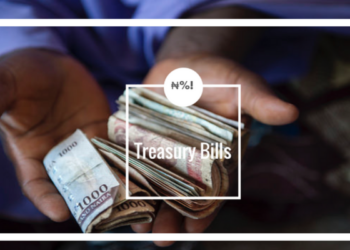Nigeria’s drive toward cleaner transportation has taken a major legislative step, but the country’s automotive and energy experts remain sharply divided over whether the nation is ready for a large-scale transition to electric vehicles (EVs).
While the bill has been hailed in some quarters as a forward-looking industrial policy, a growing chorus of analysts warns that its implementation timelines and mandatory localisation requirements may be unrealistic under current national conditions.
However, proponents argue that the bill is arriving at a crucial moment for Nigeria as the country grapples with high fuel prices, persistent dependence on imported petrol, and mounting pressure on foreign exchange reserves.
The Bill
The Electric Vehicle Transition and Green Mobility Bill, sponsored by Senator Orji Uzor Kalu (Abia North), passed its second reading at the Senate on November 5, 2025, setting the stage for what could become one of Nigeria’s most consequential industrial policies. A copy of the bill was obtained by Nairametrics.
- Under Section 2(1) of the bill, foreign automakers seeking to operate in Nigeria may only import, sell, or distribute their EVs through registered local partnerships. The legislation further imposes heavy penalties, up to N250 million per violation, on any manufacturer who disregards this provision, with the possibility of suspension of operations by the Federal Government for each act of non-compliance.
- In addition, foreign EV companies would be required to establish a local assembly plant within three years of commencing operations in Nigeria. By 2030, they must source at least 30% of vehicle components locally, a move the Senate says is intended to stimulate domestic manufacturing, create jobs, and enhance technology transfer.
- For Nigerian assemblers and dealers, the requirements are equally stringent. Local manufacturers, importers, distributors, or sellers must obtain an operational license. To qualify, they must demonstrate the capacity to produce a minimum of 5,000 electric vehicles annually.
The bill states that any unlicensed dealer importing unauthorised EVs will face a N500 million fine per shipment, with confiscation of goods.
EVs to reduce Nigeria’s fuel dependency
Some industry analysts argue that Nigeria must accelerate its transition to electric mobility to remain globally competitive.
Automotive expert Tope Famakin said EVs offer lower long-term costs for Nigerians due to reduced maintenance and cheaper energy requirements compared to petrol-powered vehicles. He believes the bill provides the needed push to modernise Nigeria’s transportation system.
According to him, investing in EV charging infrastructure, local assembly, and public awareness will yield environmental and economic benefits.
“The more we invest in electric vehicle infrastructure and awareness, the faster we can reduce our dependence on imported fuel and improve transportation efficiency for Nigerians,” he said.
Famakin added that Nigeria’s chronic reliance on petrol imports, which places pressure on foreign exchange reserves, makes EV adoption not just an environmental necessity but also an economic imperative.
Engineer Beatrice Elujoba echoed these sentiments, emphasizing the massive potential savings from reduced petrol imports. “EVs can help Nigeria save trillions of naira and drive the country towards a more sustainable future,” she said.
Energy and environmental experts have largely welcomed the bill, asserting that its passage could propel Nigeria closer to its commitment to achieve net-zero emissions by 2060.
Dr. Amina Suleiman, an energy policy analyst, said, “Transitioning to electric vehicles is a critical step for Nigeria. It will reduce the country’s dependence on imported fossil fuels, cut greenhouse gas emissions, and create new economic opportunities in green technologies.”
The bill encourages partnerships between foreign automakers and Nigerian firms, mandating local assembly and distribution to foster homegrown industry growth.
This strategy, he said, is expected to stimulate job creation and technology transfer, positioning Nigeria as a key player in Africa’s green mobility revolution.
“Nigeria not ready yet”
Despite its ambitious targets, the bill has drawn criticism from stakeholders who question the practicality of its provisions.
Abuja-based automotive technician at Auto Mobility Services, Cyril Baros, raised concerns about Nigeria’s technical readiness.
“How many certified EV technicians do we have in the country? You cannot legislate a transition without first preparing the workforce,” he said.
Engr. Michael Oladele, an automotive engineer, noted, “We must invest in renewable energy generation and expand the national grid’s capacity to support EV charging stations. Without this, the full benefits of electric vehicles may remain out of reach for many Nigerians.”
This concern was equally expressed recently by the Nigerian Midstream and Downstream Petroleum Regulatory Authority (NMDPRA).
The agency identified poor electricity supply as a major challenge stalling Nigeria’s electric mobility transition. The agency also pointed to high costs of electric vehicles and limited infrastructure as key barriers.
- Speaking recently at a webinar organised by the Major Energies Marketers Association of Nigeria on the theme ‘Accelerating Electric Mobility Adoption in Nigeria by Unlocking Downstream Potential’, the Director of Operations, Distribution Systems, Storage, and Retailing Infrastructure at NMDPRA, Dr Mukaila Oseni, situated Nigeria’s EV journey within a global context, referencing the International Energy Agency’s forecast of 145 million electric vehicles worldwide by 2030.
- He said the barriers slowing EV adoption in Nigeria include high vehicle costs, limited charging infrastructure, unreliable grid electricity, and low public awareness. Oseni stressed that without urgent interventions, the country may struggle to keep pace with the global energy transition.
Other experts point out that EVs remain too expensive for the average Nigerian, with some models costing well above the purchasing power of most households. They argue that without financial incentives—such as tax breaks, subsidies, and low-interest financing—the policy would remain elitist.
Concerns also linger over the availability of charging stations, especially in rural areas and states with fragile electricity infrastructure. Several analysts have warned that rapid implementation without addressing power supply challenges could frustrate adopters and erode public confidence.
Another expert argued that the bill should be implemented in phases, allowing the country time to expand its grid, train technicians, and develop local supply chains.
What you should know
According to the country’s Energy Transition Plan, launched in 2022, it aims for a 100% transition to electric vehicles by 2060.
The federal government also instituted a National Action Plan for the Development of Electric Vehicles (EVDP), aiming for at least 30% of vehicles produced locally to be electric by 2032, alongside efforts to reduce reliance on imported vehicles.























